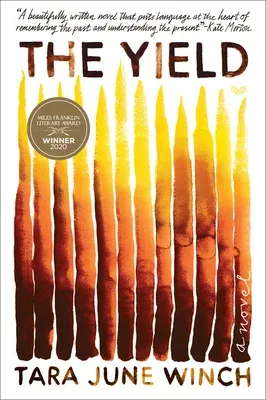Winner of the 2020 Miles Franklin Literary Award and 2021 Kate Challis
RAKA Award!
"A beautifully written novel that puts language at the heart of
remembering the past and understanding the present."--Kate Morton
"A groundbreaking novel for black and white Australia."--Richard
Flanagan, Man Booker Prize winning author of The Narrow Road to the
Deep North
A young Australian woman searches for her grandfather's dictionary,
the key to halting a mining company from destroying her family's home
and ancestral land in this exquisitely written, heartbreaking, yet
hopeful novel of culture, language, tradition, suffering, and
empowerment in the tradition of Louise Erdrich, Sandra Cisneros, and Amy
Harmon.
Knowing that he will soon die, Albert "Poppy" Gondiwindi has one final
task he must fulfill. A member of the indigenous Wiradjuri tribe, he has
spent his adult life in Prosperous House and the town of Massacre
Plains, a small enclave on the banks of the Murrumby River. Before he
takes his last breath, Poppy is determined to pass on the language of
his people, the traditions of his ancestors, and everything that was
ever remembered by those who came before him. The land itself aids him;
he finds the words on the wind.
After his passing, Poppy's granddaughter, August, returns home from
Europe, where she has lived the past ten years, to attend his burial.
Her overwhelming grief is compounded by the pain, anger, and sadness of
memory--of growing up in poverty before her mother's incarceration, of
the racism she and her people endured, of the mysterious disappearance
of her sister when they were children; an event that has haunted her and
changed her life. Her homecoming is bittersweet as she confronts the
love of her kin and news that Prosperous is to be repossessed by a
mining company. Determined to make amends and honor Poppy and her
family, she vows to save their land--a quest guided by the voice of her
grandfather that leads into the past, the stories of her people, the
secrets of the river.
Told in three masterfully woven narratives, The Yield is a celebration
of language and an exploration of what makes a place "home." A story of
a people and a culture dispossessed, it is also a joyful reminder of
what once was and what endures--a powerful reclaiming of Indigenous
language, storytelling, and identity, that offers hope for the future.

